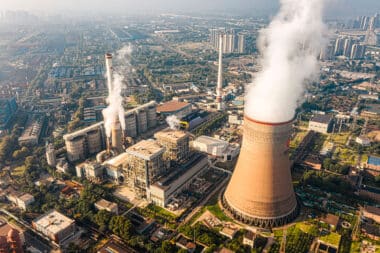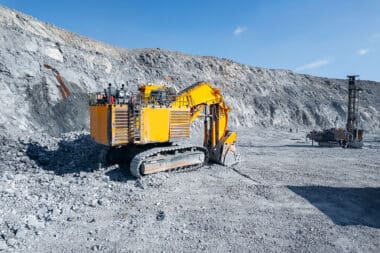Recent findings in several French regions have uncovered deposits of naturally occurring hydrogen, opening the door to a potential homegrown energy source. As global energy needs grow and the pressure to lower emissions increases, these deposits might change how France meets its energy demands while cutting back on carbon emissions.
Natural hydrogen spotted
The Ministry of Economy has verified that native hydrogen is bubbling up in different parts of France. In particular, areas like Aquitaine, the Pyrenees, and Lorraine have shown signs of these deposits (which means here could be regions rich in hydrogen). While this opens up interesting possibilities for tapping into a naturally occurring energy source, questions still remain about whether these deposits can be technically and economically tapped.
Uber is bringing self-driving cars to Europe in 2026 – here’s what we know
Tech hurdles
Dealing with natural hydrogen isn’t a walk in the park. Capturing, moving, and storing it is tricky because hydrogen is the tiniest and one of the most volatile molecules out there. (In other words, it’s hard to contain without the right tech.) These hurdles need to be overcome to build a solid infrastructure that can actually use this resource.
How we produce hydrogen now
Right now, most of the hydrogen we use around the world comes from natural gas, a process largely handled by the gas or petrochemical industries. This method creates what’s known as “gray hydrogen,” which unfortunately releases a lot of CO2 during production and adds to global warming. With the push for cleaner energy, there’s a growing search for better alternatives that minimize carbon emissions.
New ways to make hydrogen
Researchers are working on “green hydrogen,” which is produced via water electrolysis—a method that doesn’t release CO2 at all. Then there’s “white hydrogen” (or native hydrogen), which occurs naturally in the Earth. If we can figure out how to extract it, white hydrogen could provide an eco-friendly alternative, adding an extra angle to the push for greener power options.
The promise and ongoing studies
The Ministry of Economy sees native hydrogen as a potential boost for France’s energy independence. Even though it looks promising, research on native hydrogen is still in its early days and needs to be pushed further to really understand its potential (think of it as the tip of an iceberg that needs more exploration). Many believe that drilling for more information in these promising areas is the next logical step.
New legal moves
Back in 2022, France made a smart move by tweaking its mining code to officially include native hydrogen as a mining substance. This updated legal framework (which sets the stage for future explorations) could help pave the way for further development of this emerging resource.
Research and fieldwork
To dig deeper into what native hydrogen might offer, IFPEN (the French Institute of Petroleum and New Energies) commissioned a comprehensive study in April 2024. This report was a team effort, involving the Bureau of Geological and Mining Research (BRGM), University of Lorraine, University of Montpellier, Bordeaux INP, institutions in Grenoble, Pau and Pays de l’Adour, and the Institute of Earth Physics. On top of that, two dedicated research permits were issued in the Landes and the Pyrenees, and these were published in the Official Journal on March 29, 2025. (These collaborations highlight France’s commitment to exploring all possibilities with native hydrogen.)
Heading into the future, France has quite a mix of challenges and opportunities ahead on its journey with native hydrogen. While the deposits could reshape the nation’s approach to energy, ongoing research will be key in determining just how big a role native hydrogen can play in meeting energy needs—and maybe even setting an example for cleaner energy solutions around the world.








